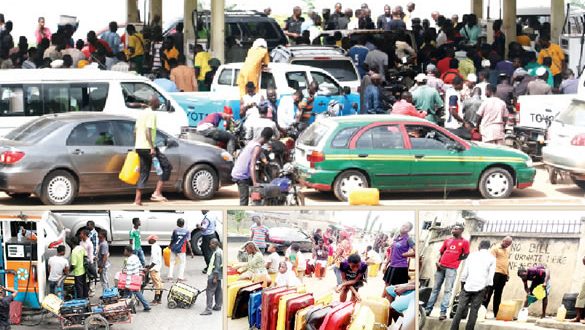
In recent months, Nigeria has faced a severe fuel hike that has left citizens grappling with the consequences. The sudden increase in fuel prices has sparked widespread protests, economic instability, and significant hardship among the populace. As one of Africa’s largest oil producers, Nigeria’s fuel crisis underscores the complexities of its economy, governance, and the daily lives of its people.
The fuel hike was precipitated by the government’s decision to remove the subsidy that had long kept prices artificially low. While this move was intended to free up funds for national development and improve fiscal responsibility, it has instead led to immediate negative repercussions for millions of Nigerians. The decision was met with outrage as citizens found themselves paying double or even triple the amounts they previously spent on transportation and goods.
The impact of the fuel price increase is felt most acutely in urban areas where public transport relies heavily on affordable fuel prices. Bus fares have skyrocketed, forcing many to adjust their daily budgets, often at the expense of basic necessities. Commuters, especially those earning low wages, are now faced with impossible choices: pay for transportation or sacrifice food and healthcare.
Moreover, businesses of all sizes have been affected, leading to a ripple effect throughout the economy. Small and medium enterprises, which form the backbone of Nigeria’s economy, are particularly vulnerable. Increased transportation costs have driven up operational expenses, resulting in higher prices for goods and services. Many small business owners report decreased customer patronage, further straining their finances and threatening their survival.
Rural communities have not been spared either. Many rely on fuel for generators used in farming and food preservation. As fuel prices soar, agricultural productivity may decline due to the inability to operate machinery efficiently, jeopardizing food security. Consequently, this fuel hike could steer the country toward an even deeper economic crisis.
The anger and frustration expressed by citizens have translated into protests across major cities. Demonstrators have taken to the streets, demanding government accountability and transparency. While some protests remain peaceful, others have escalated into clashes with law enforcement, highlighting the government’s struggle to maintain order in the face of rising discontent.
The government’s response has been met with mixed reactions. Some officials argue that the removal of fuel subsidies is a necessary step toward economic reform, while critics claim that the timing and manner of the policy implementation were poorly handled. Calls for better communication and engagement with the populace before such drastic changes have echoed through civil society organizations.
As the situation unfolds, there is growing concern over the socio-political implications of the fuel hike. The current unrest highlights underlying issues of governance, economic disparity, and the relationship between the government and its citizens. If left unaddressed, these tensions could lead to more profound instability in a nation already struggling with corruption, unemployment, and widespread poverty.
Nigeria’s vulnerability to external shocks, such as fluctuating oil prices globally, further complicates the situation. With over 90% of the country’s foreign earnings derived from oil exports, any disruption in global markets can have devastating effects. The reliance on oil has arguably trapped Nigeria in a cycle of economic turmoil that requires urgent diversification and structural reforms.
To alleviate the burden of the fuel hike, some experts suggest that the Nigerian government should explore alternative energy sources and invest in public transportation infrastructure. By doing so, the country can reduce its dependence on fuel and create jobs in emerging industries. Such reforms would not only address immediate concerns but also contribute to long-term sustainability.
Furthermore, the government must prioritize rebuilding trust with its citizens. Engaging in transparent dialogue about economic policies and involving civil society in decision-making processes can bridge the gap between the authorities and the populace. Strengthening democratic institutions and encouraging civic participation is crucial in fostering a sense of ownership and accountability.
In conclusion, the fuel hike trauma in Nigeria is a stark reminder of the delicate balance between economic policy and social welfare. As citizens navigate these challenging times, it is imperative that the government reassesses its approach to governance, prioritizing the needs of the people. The path forward requires collective effort, innovative solutions, and a commitment to building a fairer and more resilient society. Only through unity and proactive measures can Nigeria hope to emerge from this crisis and chart a course toward sustainable growth and prosperity.
 National Telescope national telescope newspaper
National Telescope national telescope newspaper



